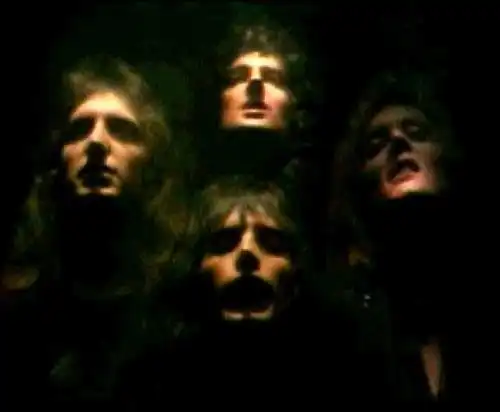Mama, Just Killed a Man Review of Bohemian Rhapsody, by Stefan Stenudd
He decided to call himself Mercury, the messenger of the gods – but I guess he was thinking more of the metal sensitive to temperature and liquid already at -38° C. Maybe he had once made the experiment I did as a kid, putting a lighter under a thermometer, which cracked instantly as the mercury forced its way out. That's rock'n'roll. Bohemian Rhapsody was recorded as early in their career as 1975, but Freddie Mercury is said to have worked on it since the 1960s. Although the theme of the song doesn't imply it, I've always had the impression that it related to the Vietnam war, where young Americans – barely more than teens – were sent away to kill complete strangers far away, and get killed by them. That terrible situation, in the midst of a culture finally talking freely about love, gnawed on everybody's minds, not just the Americans risking to be drafted. Even if the Vietnam war is not intended, it was certainly in the background when Freddie Mercury wrote the song. Simply put, Bohemian Rhapsody is about a boy whose life is ruined when he kills somebody. Normally, what's to like about a boy doing that? But this murder seems accidental, involuntary, like that of a drafted soldier in a war he didn't understand the reason for. And his helplessness, his despair, is announced by his exclamation right after the humble and poetic prelude: “Mama, just killed a man!” He tells his mom. What grieves him the most is that she will grieve it. He explains: “Mama, didn't mean to make you cry.” He want her to carry on, “as if nothing really matters.” That's his unselfishness in the middle of his selfish occupation with his own suffering as a consequence of his act. He's not at all concerned with the victim. He sings: “Mama, life had just begun, but now I've gone and thrown it all away.” He doesn't speak of the life he ended with the bullet, but his own future, which was smashed in the same instant. He confesses: “Mama, I don't want to die! I sometimes wish I'd never been born at all.” That's the logics of despair. Dying is so horrible, he wished not to have lived at all, so that he didn't have to face it. We feel for him, because the first thing he does after the killing is shouting out to his mother. He's a kid, longing back to the security of home and his mother's bosom. His shot cut the umbilical cord. Suddenly, he's thrown into the adult world, and he has already failed miserably. Immediately after confessing that he wishes never to have been born, the song shifts to sort of a mock opera, which is the madness he falls into as his world breaks apart. He's frightened, but it's also magnificent. Life and death, heaven and hell, all of it seems to collide inside his chest. Then he cries for mercy. “I'm just a poor boy and nobody loves me.” He wonders if they can let him go. But no, regardless of how much he begs. He is doomed: “Beelzebub has a devil put aside for me.” Expecting no mercy, he turns to anger and the song changes to hard rock. He's defiant: “So you think you can stone me and spit in my eye!” He won't accept it, and thinks about fleeing. But that moment of fierce defiance passes quickly. He has to accept his fate, since there's no way to escape it. When he finally gives in to it, the only thing left for him is to tell himself that he's indifferent. It's the last resort. Accepting the unavoidable fate is coming to terms with it as if willingly walking towards it, as if he didn't care at all: “Nothing really matters to me.” The six minute song is a drama, the tragedy of one young man whose life is ruined by one sudden confused deed, like a mere whim, and how he struggles to come to terms with it. Although few of us have had that experience, we can all relate to it. Life is lived under the sword of Damocles. Anyone can be struck by it at any time. What to do but sing about it? Here's the original video of Bohemian Rhapsody (on YouTube, the whole text is below the video):
Stefan Stenudd August 11, 2012
More Reviews
About CookiesMy Other WebsitesCREATION MYTHSMyths in general and myths of creation in particular.
TAOISMThe wisdom of Taoism and the Tao Te Ching, its ancient source.
LIFE ENERGYAn encyclopedia of life energy concepts around the world.
QI ENERGY EXERCISESQi (also spelled chi or ki) explained, with exercises to increase it.
I CHINGThe ancient Chinese system of divination and free online reading.
TAROTTarot card meanings in divination and a free online spread.
ASTROLOGYThe complete horoscope chart and how to read it.
MY AMAZON PAGE
MY YOUTUBE AIKIDO
MY YOUTUBE ART
MY FACEBOOK
MY INSTAGRAM
MY TWITTER
STENUDD PĹ SVENSKA
|
 Ever Young
Ever Young